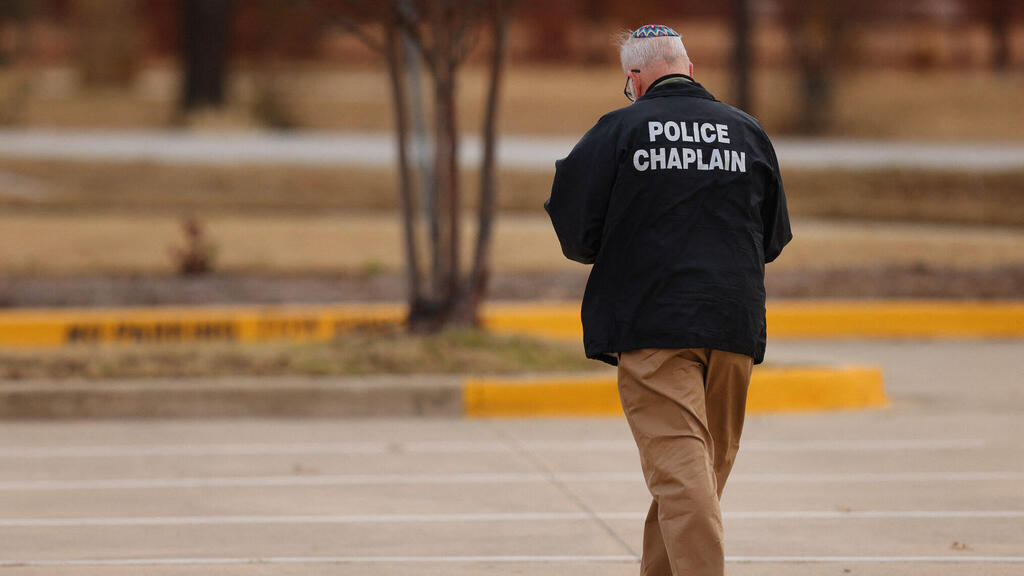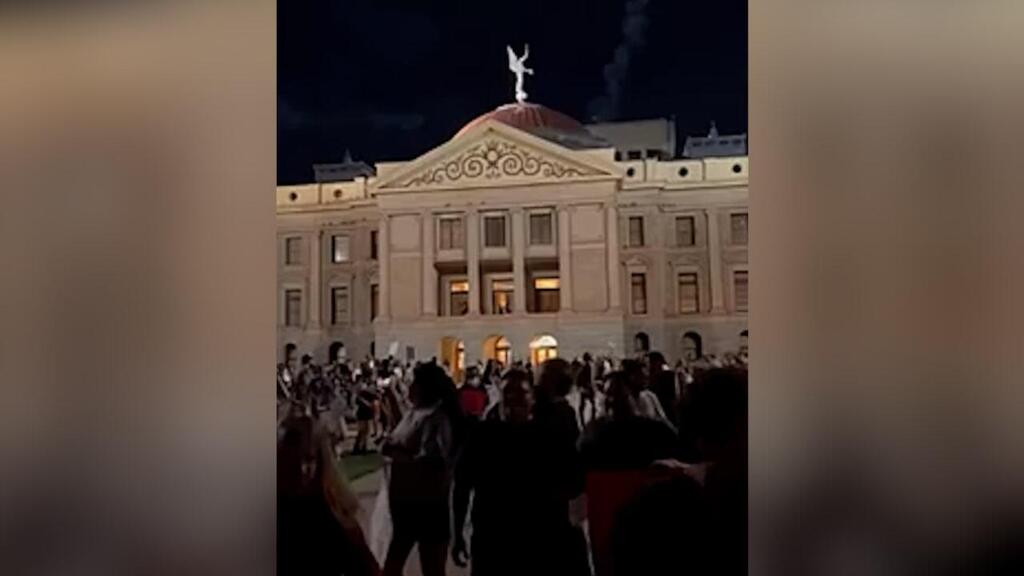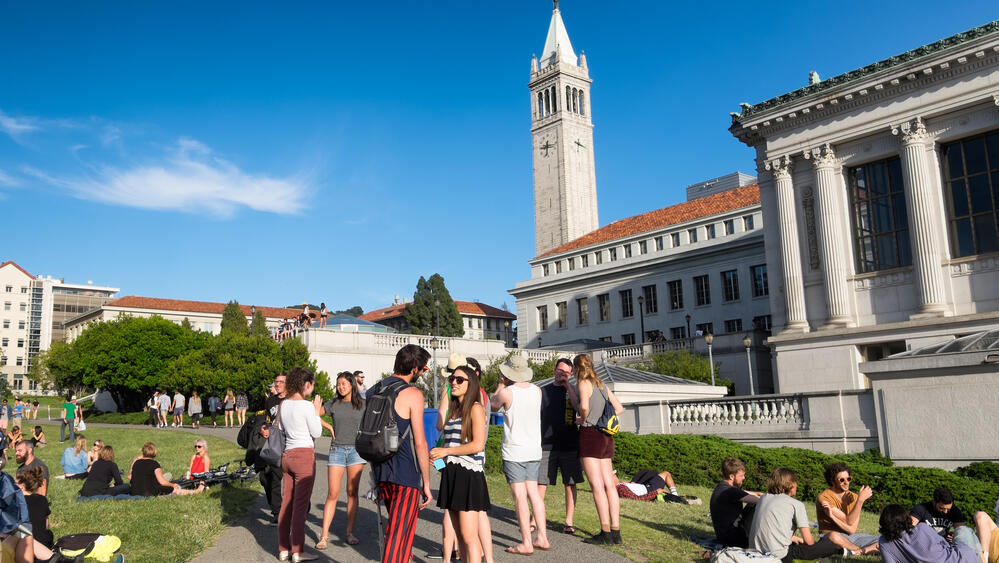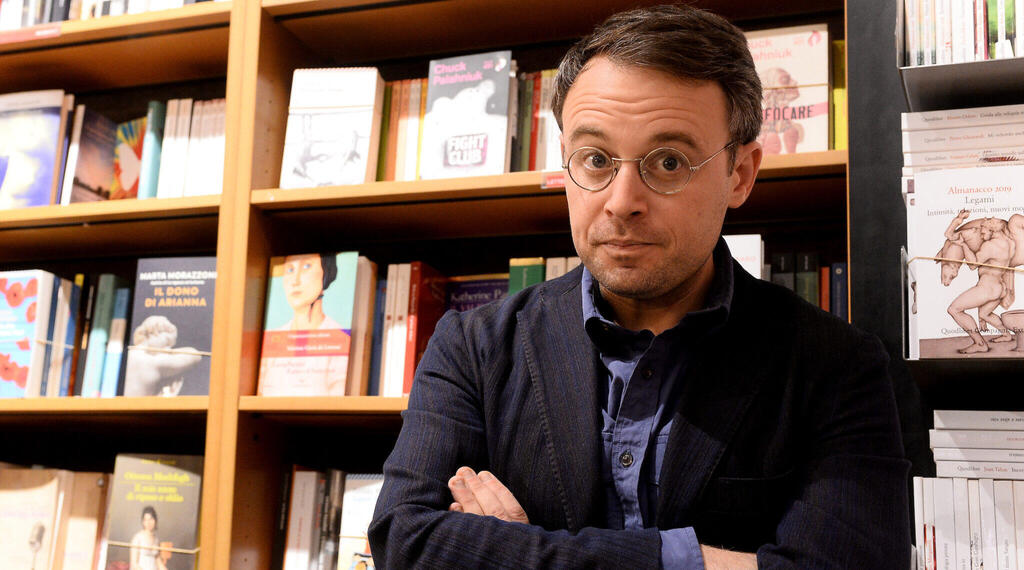Jewish eras can be defined by events (the fall of the Second Temple, the Inquisition, the founding of Israel) and by ideas (the rabbinic era, emancipation, post-denominationalism). A community reveals itself in the things it argues about most passionately.
It’s too early to tell what ideas will define this era, although a look back at the big debates of 2022 suggests Jews in North America will be discussing a few issues for a long time: the resurgence of antisemitism, the boundaries of free speech, the red/blue culture wars.
Below are eight of some of the key debates of the past year as (mostly) reflected in the Jewish Telegraphic Agency’s opinion section (which I have a hand in editing). They suggest, above all, a community anxious about its standing in the American body politic despite its strength and self-confidence.
Antisemitism and the Black-Jewish alliance
The rapper Kanye West spread canards about Jews and power. Brooklyn Nets star Kyrie Irving shared an antisemitic film on Twitter. And comedian Dave Chappelle made light of both incidents on “Saturday Night Live,” suggesting comics like him had more to fear from cancellation than Jews did from rising antisemitism.
The central roles played in these controversies by three African-American celebrities revived longstanding tensions between two communities who haven’t been able to count on their historic ties since the end of the civil rights era.
The war of words was particularly vexing for Jews of color, like the rabbi known as MaNishtana and Rabbi Kendell Pinkney — who wondered whether “my mixed Jewish child will grow up in an America where she feels compelled to closet aspects of her identity because society cannot hold the wonder of her complexity.”
Jewish attitudes toward Ukraine
Russia’s war on Ukraine stirred up complex feelings among Jews. It led to an outpouring of support for the innocents caught up in or sent fleeing by Russia’s invasion, and the Jewish president who became their symbol of defiance.
It reinvigorated a Jewish rescue apparatus that seemed to have been in hibernation for years. And it probed Jews’ memories of their own historic suffering in Ukraine, often at the hands of the ancestors of those now under attack.
Jews and the end of Roe v. Wade
In June the U.S. Supreme Court voted 5-4 to overturn Roe v. Wade. It was an unthinkable outcome for liberal Jewish activists, women especially, who for 50 years and more had regarded the right to an abortion as integral to their Jewish identity and political worldview.
Before the decision came down, Jewish studies scholar Michal Raucher questioned long-held Jewish organizational views that justified abortion only on the narrowest of religious grounds without acknowledging that women “have the bodily autonomy to make that decision on their own.”
Conversely, Avi Shafran of Agudath Israel of America welcomed the end of Roe on behalf of his haredi Orthodox organization, writing that the rabbis “who guide us indisputably hold that, absent extraordinary circumstances, terminating a pregnancy is a grave sin.”
Responding to Shafran, Daphne Lazar Price, an Orthodox Jewish feminist, argued that even in her stringently religious community, getting an abortion is a “conscious choice by women to follow their religious convictions and maintain their human dignity.”
Colleyville and synagogue safety
After a gunman held a rabbi and three congregants hostage at a Colleyville, Texas synagogue in January, Jewish institutions called for even tighter security at buildings that had already been hardened after the Pittsburgh synagogue massacre in 2018.
And yet for some, the sight of armed guards and locked doors undermines the spirit of a house of worship. Raphael Magarik of the University of Illinois Chicago argued that the Colleyville incident shouldn’t lead to an overreaction, especially when congregations are struggling to come back together after the pandemic.
7 View gallery


A police chaplain near the Congregation Beth Israel Synagogue
(Photo: Andy Jacobsohn/AFP via Getty Images)
Rabbi Joshua Ladon warned about the “impulse to allow fear to define our actions.” Meanwhile, Jews of color said armed guards and police patrols can make them feel unsafe. In a powerful response, Mijal Bitton and Rabbi Isaiah Rothstein of the Shalom Hartman Center wrote that Jewish institutions must think in “expansive and creative ways about how to fight for our combined safety in a way that takes into account the rich ethnic and racial diversity of our communities.”
Anti-Zionism, antisemitism and “Jew-free zones”
When nine student groups at UC Berkeley’s law school adopted by-laws saying that they will not invite speakers who support Zionism, the Jewish Journal in Los Angeles ran an op-ed with the provocative headline, “Berkeley Develops Jewish Free Zones.”
In the essay, Kenneth L. Marcus, who heads the Brandeis Center for Human Rights Under Law, argued that “Zionism is an integral aspect of the identity of many Jews,” and that the bylaws act as “racially restrictive covenants,” precluding Jewish participation.
Defenders of the pro-Palestinian students countered that groups often invite only like-minded speakers, and that while being Jewish is an identity, Zionism is a political viewpoint.
Faculty, politicians and activists weighed in on both sides of what has become a central debate on campuses and beyond: When does anti-Zionism become antisemitism, and how do you balance free speech rights against the claims by some students that their personal safety hangs in the balance?
“Maus” and school book bans
Caught up in an epidemic of book-banning were Jewish books for children and young adults, a list that includes “The Purim Superhero,” “Family Fletcher” and “Chik Chak Shabbat.” A Texas school board removed a 2018 graphic novel adaptation of Anne Frank’s diary.
But perhaps the highest profile case of a Jewish-interest book being banned came when a Tennessee school board voted to remove “Maus” — Art Speigelman’s epic cartoon memoir about the Holocaust — from middle-school classrooms, citing its use of profanity, nudity and depictions of “killing kids.”
Coverage of the ban misleadingly depicted “Maus” as an introduction to the Shoah for young adults, while Speigelman recently noted that he had become a reluctant “metonym” for the book-banning issue. Jennifer Caplan explained why the book is indispensable: “‘Maus’ forces the reader to bear witness in a way no written account can, and the [illustrations] are especially good at forcing the eye to see what the mind prefers to glide past.”
Artificial intelligence and real-life dilemmas
Artificial intelligence, or AI, has become a fact of corporate life, with computing advances that power robotic automation, computer vision and natural-language text generation.
But what captured the public imagination — and dread — this year were sites like Dall-E, which threatened the livelihood of graphic designers by generating original, credible illustrations with no more than a simple prompt, and ChatGPT, which is able to expound cogently and humanly on practically any topic.
Beyond everyday ethical dilemmas (“Can I write my book report using ChatGPT?”) AI raised profound questions about what it means to be human. “Rabbis have historically been very open to the idea of nonhuman sentience and have tended to see parallels between humans and nonhumans as an excuse to treat nonhumans better,” wrote David Zvi Kalman in an essay on the prospect of creating artificial life.
Similarly, Mois Navon suggested in JTA that “if a machine is sentient, it is no longer an inanimate object with no moral status or ‘rights’ … but rather an animate being with the status of a ‘moral patient’ to whom we owe consideration.
A Pulitzer for “The Netanyahus”
Joshua Cohen was the somewhat surprising winner of the Pulitzer Prize in Fiction for his novel “The Netanyahus: An Account of a Minor and Ultimately Even Negligible Episode in the History of a Very Famous Family.” Or maybe not so surprising: The book is a fictionalized treatment of a real-life visit in the late 1950s by the Israeli historian Benzion Netanyahu for a job interview at a university very much like Cornell.
With Benzion’s son Benjamin angling for an ultimately successful return to office in real life, a satire about Jewish power, right-wing Zionism and Israeli self-regard might have seemed to the judges very much of the moment.
As critic Adam Kirsch wrote in a JTA essay, Cohen concludes that both American and Israeli Jewish identities “are absurd, crying out for the kind of satire that can only come from intimate knowledge.” Others weren’t amused. Jewish Currents criticized the novel for being derivative of both Philip Roth and Saul Bellow, and the Jewish Review of Books said that the novel includes “a capsule history of Zionism that is so blatant a distortion that I just gave up.”







